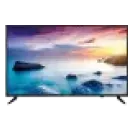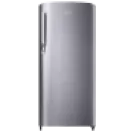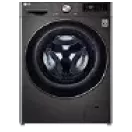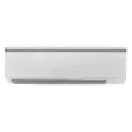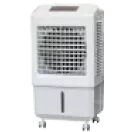Buying a good air conditioner for your home not only offers respite from the summer heat, but also gives you the benefit of air purification all year round. Along with that, it provides humidity control in the monsoon, and heating in winter. With numerous options flooding the market, knowing how to select AC for your home will help you make an informed decision.
To enhance the benefits you can enjoy, make it a point to shop for a split air conditioner or a window AC this summer. This is the best time to invest in an AC.
Before you start shopping, take a quick look at the tips you should keep in mind to select the best AC for your home.
Factors to consider when choosing an AC for your home
When purchasing an air conditioner (AC), consider the following factors to make an informed decision:
- Room size: Choose an AC with the appropriate cooling capacity (measured in BTUs or tons) based on your room size. A small room requires less cooling power than a large living area.
- Energy efficiency: Look for ACs with high energy efficiency ratings (like the EER or ISEER). Energy-efficient models save electricity and reduce your utility bills.
- Type of AC: Decide between split ACs (with indoor and outdoor units) or window ACs (installed in a window frame). Split ACs are quieter and offer better aesthetics, while window ACs are more straightforward to install.
- Cooling speeds and modes: Check if the AC offers multiple cooling speeds, fan modes, and sleep functions. Some models also have features like turbo mode and dehumidification.
- Noise level: Consider the noise level (measured in decibels) of the AC. Quieter units are more comfortable, especially for bedrooms.
- Air quality features: Look for filters that improve indoor air quality. Features like HEPA filters, anti-bacterial coatings, and dust filters can enhance your overall comfort.
- Installation and maintenance: Factor in installation costs and ongoing maintenance. Regular cleaning and servicing are essential for optimal performance.
Choose the right type of AC for your needs
Choosing the correct AC type improves comfort saves energy and ensures reliable cooling that suits every room size at home.
- Split air conditioners: Best for bedrooms and living rooms. They offer quiet operation and strong cooling. They also look neat and save space indoors.
- Window air conditioners: Ideal for small rooms. They are easy to install and budget-friendly. They suit homes with limited wall space.
- Portable air conditioners: Useful for rented homes. They can be moved between rooms. They are simple to set up and flexible to use.
- Inverter air conditioners: Great for long daily use. They adjust cooling as needed. They save electricity and maintain steady room temperature.
- Cassette and tower air conditioners: Suitable for large spaces. They cool faster and cover wide areas. They work well in halls and offices.
You must also check out the price list of ACs before making your choice.
Check the cooling capacity
When selecting an air conditioner for home, it’s important to consider the cooling capacity based on room size. Use this AC cooling capacity chart as part of your air conditioner buying guide to help you choose the best AC for home use that suits your needs.
Area
|
Capacity in BTUs per hour
|
Tonnage of the AC
|
0 to 90 sq. ft.
|
~5,000
|
1
|
90 to 110 sq. ft.
|
~12,000
|
1.2
|
120 to 150 sq. ft.
|
~18,000
|
1.5
|
150 to 200 sq. ft.
|
~24,000
|
2
|
Note that several more factors, like the height of the room, average room temperature, floor number, and window size affect how quickly your AC will cool your room.
Benefits of an inverter AC
An inverter AC offers steady cooling lower power use and better comfort for daily home cooling needs.
- Saves electricity every day: Inverter ACs adjust their speed based on room temperature. This reduces power use and helps lower monthly electricity bills.
- Maintains steady room temperature: These ACs avoid frequent on and off cycles. This keeps the room cool without sudden temperature changes.
- Operates with less noise: Inverter technology ensures quiet performance. It is ideal for bedrooms study rooms and work from home spaces.
- Lasts longer with less wear: Smooth operation reduces strain on the compressor. This improves durability and lowers long term maintenance needs.
- Cools faster during peak heat: Inverter ACs reach the desired temperature quickly. They deliver comfort even during extreme summer conditions.
Also read: Difference between 5 Star and 3 Star air conditioners
Price list of top selling home air conditioners in India (2026)
Discover the top-selling home air conditioners in India, offering a variety of features and cooling capacities. Use this guide as part of your air conditioner buying guide to make an informed decision when choosing the best air conditioner for home.
Brand
|
Model Code
|
Capacity
|
Star Rating
|
Type
|
Price
|
Godrej
|
GSC 12 FFZH 3 IDU 3S
|
1 Ton
|
3 Star
|
Split AC
|
Rs. 8,996
|
Voltas
|
SAC125V Vectra Elite
|
1 Ton
|
5 Star
|
Inverter Split AC
|
Rs. 34,990
|
Daikin
|
RKL50UV16VAF
|
1.5 Ton
|
3 Star
|
Split AC
|
Rs. 53,830
|
Samsung
|
AR50F18D13HNNA
|
1.5 Ton
|
3 Star
|
Inverter Split Smart AC
|
Rs. 72,790
|
Hitachi
|
RAS-G324PCCISS
|
2 Ton
|
3 Star
|
Inverter Split AC
|
Rs. 50,932
|
Disclaimer: The features, availability, and pricing of each model are subject to change and may vary. For the most accurate and up-to-date information, please visit the official website or visit any of the Bajaj Finserv partner stores.
You can also explore the latest offers on a wide range of electronics and home appliances, making sure you get the best deal on every purchase.
How to calculate the right AC size for your room
- Measure your room area
Note the length and width of the room. Larger rooms need higher cooling capacity for effective performance.
- Match room size with tonnage
Small rooms suit a one ton AC. Medium rooms need one point five ton. Large rooms require two ton models.
- Consider ceiling height
Taller ceilings increase cooling needs. Choose a higher capacity AC for rooms with extra height.
- Check sunlight exposure
Rooms with direct sunlight heat up faster. A higher tonnage AC helps maintain steady cooling.
- Count people and appliances
More occupants and devices generate heat. Choose a slightly higher capacity for better comfort.
Inverter AC versus non inverter AC which is best for home use
Comparing inverter and non inverter AC options helps you choose the right model for comfort savings and daily home use.
- Power consumption difference
Inverter ACs adjust speed and use less electricity. Non inverter ACs switch on and off and consume more power.
- Cooling performance
Inverter models maintain steady temperature. Non inverter models cause frequent temperature changes.
- Noise levels
Inverter ACs run quietly. Non inverter ACs are louder due to repeated start and stop cycles.
- Long term savings
Inverter ACs cost more initially but save money over time. Non inverter ACs are cheaper upfront.
- Best choice for daily use
Inverter ACs suit long daily usage. Non inverter ACs suit occasional cooling needs.
Get electronics and appliances on Easy EMIs with Bajaj Finserv
Upgrading your home with the latest electronics and appliances is now easier and more affordable with Bajaj Finserv’s flexible financing options. You can also maximise your savings by using Bajaj Finserv’s savings calculator—a smart tool that combines brand offers, dealer offers, and EMI offers, all in one place, helping you lower the overall cost while still paying in small, bite-sized instalments. Follow these steps to get started:
- Explore products on Bajaj Mall: Browse a wide range of electronics and appliances from trusted brands. Compare features like energy ratings, storage capacity, performance settings, and design to choose the right product for your home.
- Visit a partner store: Once you shortlist a model, step into any of Bajaj Finserv’s 1.5 lakh partner stores across 4,000 cities in India. See the product in person, talk to experts, and make a confident decision.
- Choose the Easy EMI Loan option: At checkout, select the Bajaj Finserv Easy EMI Loan. Avail financing of up to Rs. 5 lakh and split the cost into convenient monthly instalments. Some products also come with a zero down payment option.
- Check your loan eligibility online: Plan better by checking your loan eligibility in minutes. Simply enter your mobile number and OTP to know your loan limit.
- Use the EMI Network Card for purchases up to Rs. 3 lakh: Already own the Bajaj Finserv EMI Network Card? Use it for instant, paperless checkout and convert your purchases of up to Rs. 3 lakh into Easy EMIs.
